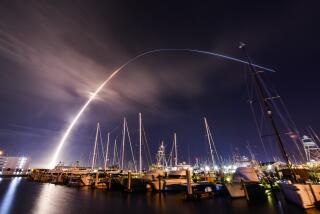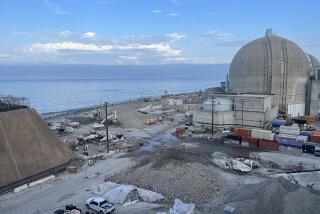Science / Medicine : Shuttle Plans on Track Despite Blast at Plant
- Share via
An explosion that leveled a rocket fuel plant last May will cause shortages this year, but NASA’s shuttle program should stay on schedule, a top space agency official said last week. The May 4, 1988, explosion of the plant in Henderson, Nev., wiped out more than half of the nation’s production capacity for ammonium perchlorate, a key ingredient in solid-fuel booster propellant.
Ammonimum perchlorate, which facilitates combustion, is used in virtually all solid-fuel rockets, including Air Force ICBMs, submarine-launched missiles and tactical weapons.
“The nation is going to see a shortage of ammonium perchlorate in 1989,” Rear Adm. Richard Truly, associate administrator in charge of the shuttle program, told a Senate subcommittee hearing.
But Truly said the rocket fuel shortage is not expected to disrupt the space agency’s shuttle manifest, which calls for seven flights this year, and he assured lawmakers, “We have made a lot of progress” since the explosion.
Shortly after the explosion that leveled the Pacific Engineering & Production Co. plant, NASA said it only had enough ammonium perchlorate for five shuttle missions, including 1.7 million pounds for a booster set produced by the only other ammonium perchlorate production facility in the United States.
More to Read
Sign up for Essential California
The most important California stories and recommendations in your inbox every morning.
You may occasionally receive promotional content from the Los Angeles Times.













